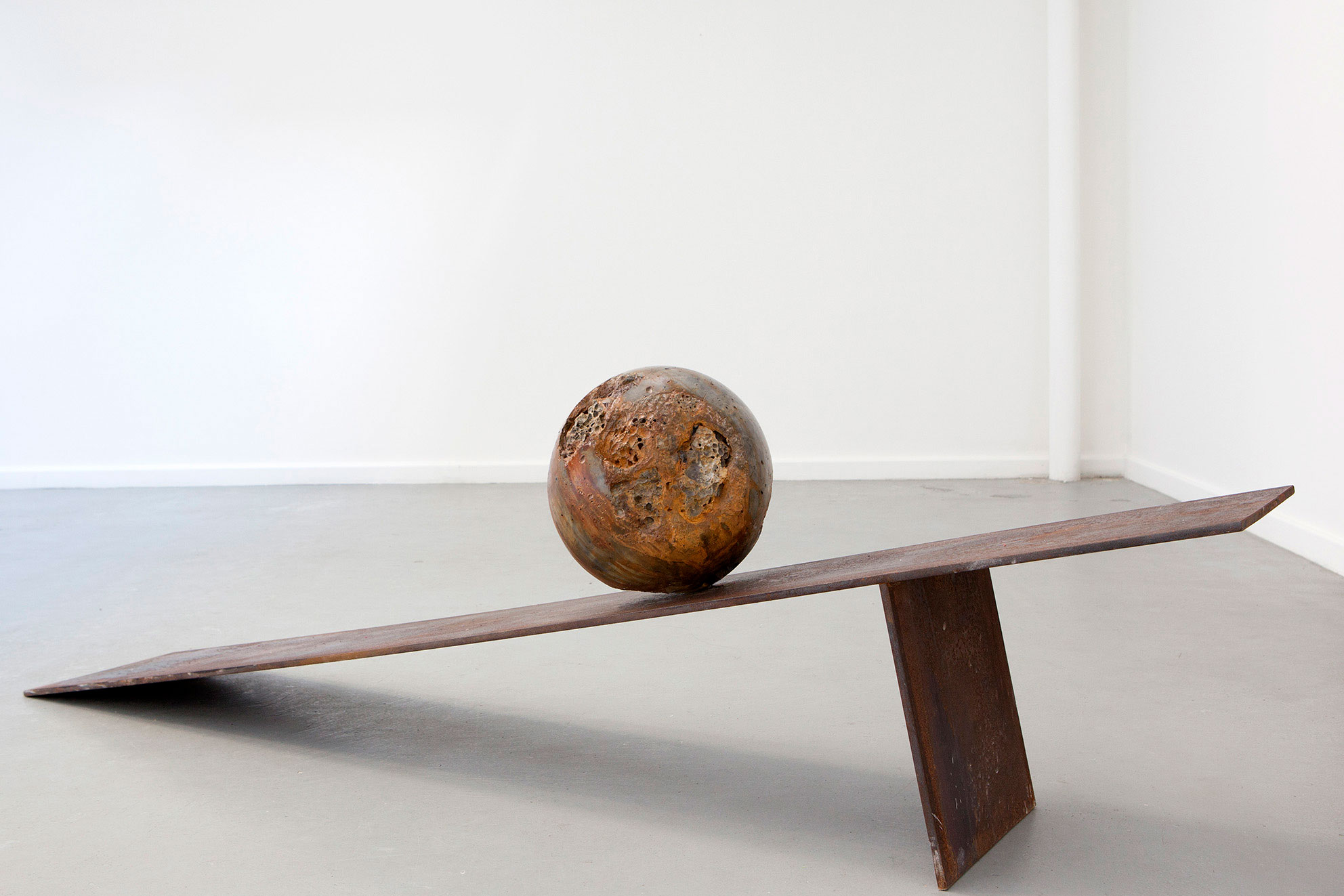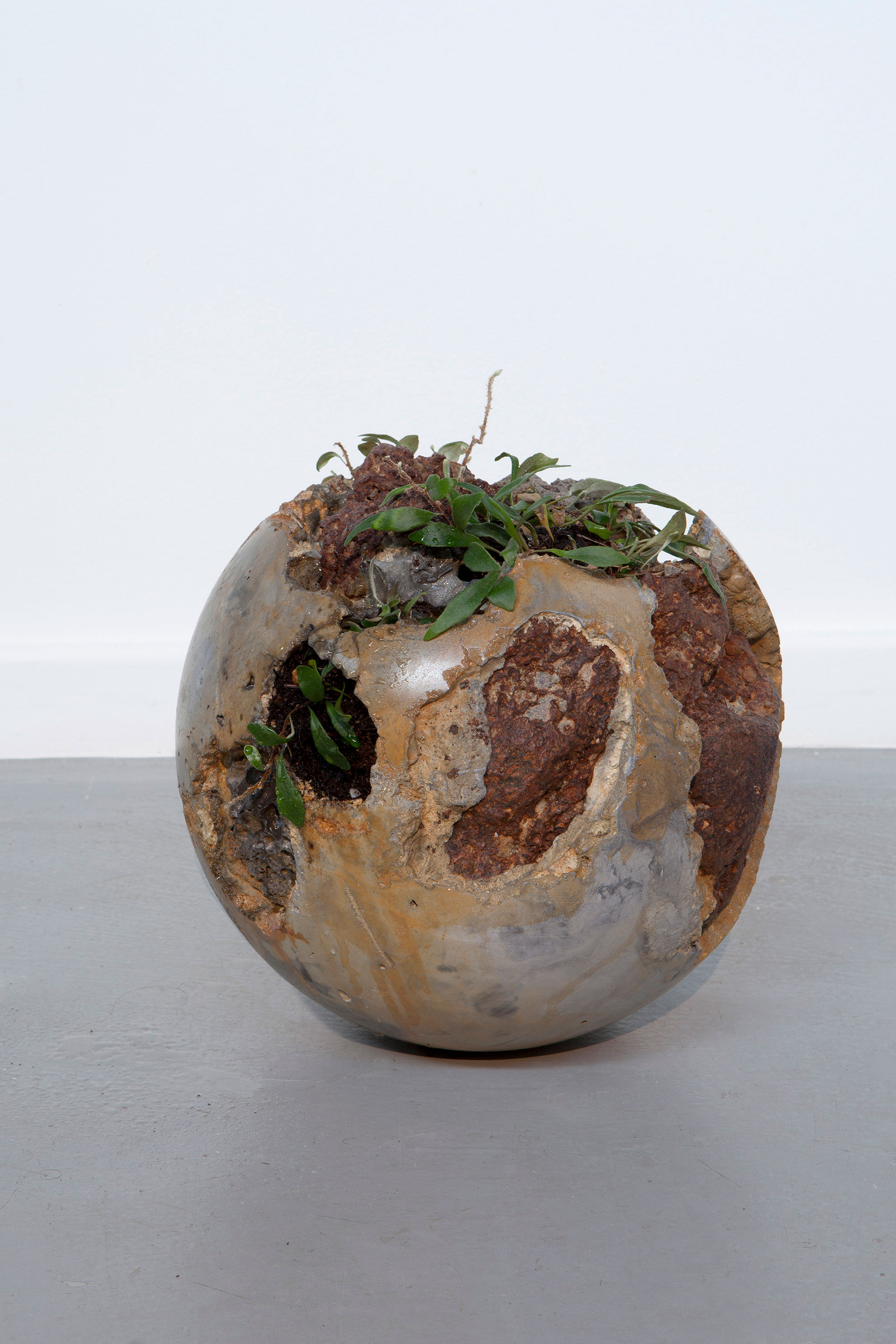JAMIE NORTH
BORN 1971
BELMONT, NEW SOUTH WALESLIVES SYDNEY, NEW SOUTH WALES
Hailing from Lake Macquarie in the Hunter Region of NSW, Jamie North grew up in the shadow of industry. His father was a bricklayer and a miner, and his grandfather and great-grandfather both worked in the Newcastle steel industry. It was the landscape, however, which lured North. From a tender age, he possessed a fascination of and deep respect for plant systems, and spent his youth adventuring through the bushlands near his home. This lived experience between the extremes of human agency and the forces of nature is the primary current that flows through North’s monumental work.
Remainder No.10 and No.11, 2017
cement, blast furnace slag, marble dust, steel, Pyrrosia rupestris (rock-felt fern)
The Remainder series of works illuminates a pivotal and ongoing characteristic of North’s practice—the use of remains from industrial processes, such as slag and marble waste. By repurposing the waste generated by steel production and placing it alongside the most definitive of regenerative processes—the succession of nature—North sharply draws our attention to the disjunction between the organic world and the anthropogenic. These remains also allow the artist to connect with the trauma in his family history and the emotional imprints left behind.
Remainder No 12, 2017
cement, blast furnace slag, marble dust, steel
North’s great-grandfather Charles Oaten worked in the Newcastle steelworks, cleaning the slidings which moved steel parts through the factory. In an horrific accident, Oaten fell onto the slidings and plunged into a vat of acid. He was pulled out of the acid alive, but subsequently died from his injuries. Remainder No 12 is a clear reference to this event, but also to the demise of Newcastle’s steel industry and the consequent ripple effect on the community.
Remainder No 12’s concrete surface is polished and lustrous in places but gnarled and rusted in others. It is distinctive in the series in that it lacks plants—life—on its eroded exterior.


